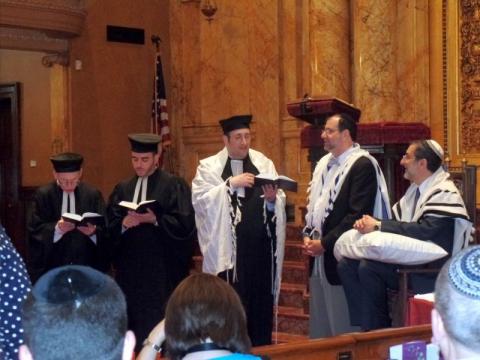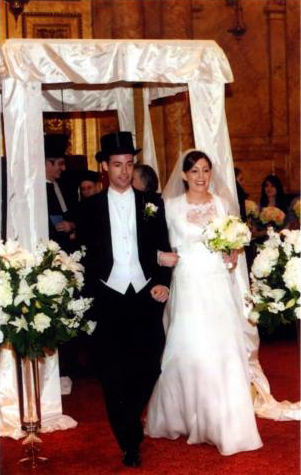Burials of congregants generally take place at Shearith Israel’s cemetery in Queens, unless the family has made other arrangements.
During the week of Shibah, families receive visitors at home. If prayer services are recited at the mourners’ home, they are chanted to the same mournful melody that is used in the synagogue on Tisha B’Av. Often, families choose to attend morning and evening services at the synagogue during the week of Shibah.
The anniversary of the death of a loved one is known in Shearith Israel as “Nahala.” The Nahala is observed on the 30th day from date of burial and on the 11th month from date of burial. The annual Nahala is observed on the anniversary of the date of the death of a loved one. In observance of a Nahala, family members attend synagogue services, and recite Kaddish as designated in the prayer book. At the conclusion of services, a “Hashcaba” (memorial prayer) is chanted. Men may receive an Aliyah to the Torah on the Shabbat morning following the Nahala of a loved one, at which time a hashcaba is recited. It is customary to make contributions to the synagogue and to other charitable institutions in memory of a loved one.
Shearith Israel maintains a “Book of Perpetual Hashcabot,” dating back to 1718. This book includes the names of congregants who have left bequests for the future maintenance of the synagogue. A hashcaba in memory of those listed in this Book of Perpetual Hashcabot is recited before services on the mornings of Rosh Hodesh, and on the Shabbat afternoon following the anniversary of the date of the passing of each person listed in the Book. Those listed in the Book of Perpetual Hashcabot are also memorialized on Yom Kippur. Families of the Congregation may arrange for the names of loved ones to be added to this historic book, by speaking with our Executive Director.



